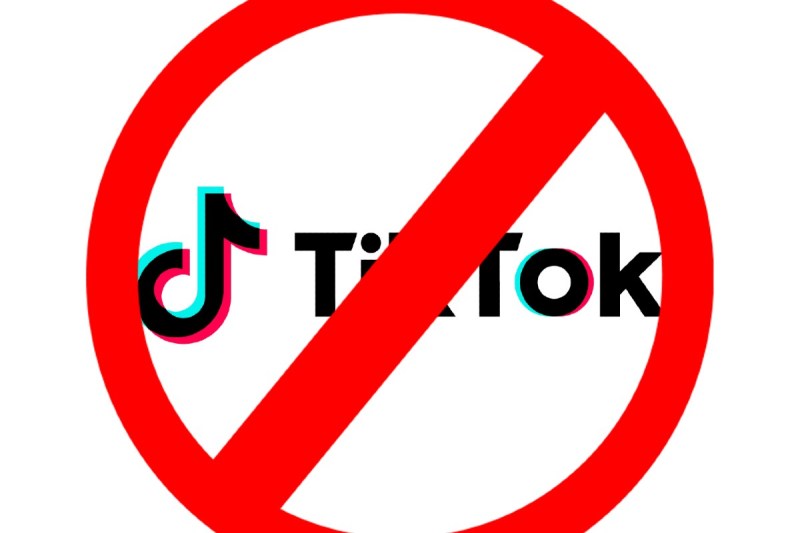BuzzFeed recently broke the news that employees of ByteDance, TikTok’s parent company in China, is watching U.S. user data — an action it reassured the U.S. that it’s specifically not doing.
Leaders are up in arms and FCC commissioner Brendan Carr was upset enough to post on Twitter that he wants Google and Apple to cease offering the app on hardware and platforms. Fat chance. TikTok saw $2.3 billion in consumer spending in 2021. This was good for $208 million in fees to splash around, according to SensorTower’s analysis.

BuzzFeed accessed “leaked audio from more than 80 internal TikTok meetings,” which showed that Chinese ByteDance employees repeatedly accessed private U.S. TikTok user data. The question is why Carr and Ted Cruz are so steamed.
“#TikTok is a Trojan horse the Chinese Communist Party can use to influence to what Americans, see, hear, and ultimately think,” Cruz wrote.
#TikTok is a Trojan horse the Chinese Communist Party can use to influence to what Americans, see, hear, and ultimately think. That’s why I sent a letter w/ @SenTomCotton urging the admin to scrutinize its activities and requesting answers on CCP control.https://t.co/EwF3b312Ue
— Senator Ted Cruz (@SenTedCruz) July 29, 2020
This is a true statement that obscures two important points. First, these TikTok employees were profiling U.S. accounts toward its efforts to turn off funneling information to China. Most of the recorded meetings focus on TikTok’s efforts to protect the flow of data from U.S. borders with an internal initiative known as Project Texas. The overwhelming number of situations where China-based staff accessed U.S. user data were employees working to bolster Project Texas.
Project Texas also goes toward ongoing TikTok negotiations with cloud services provider Oracle and the U.S. Treasury’s Committee on Foreign Investments in the United States. ByteDance’s CFIUS agreement would enable only U.S.-based TikTok employees to access protected private information held exclusively at a data center managed by Oracle in Texas.
Second, politicians want Google and Apple to cease and desist, but they’ve done virtually nothing to halt the perpetual data collection of American citizens in a post-9/11 world. While Carr throws his weight around making baseless proclamations, every person connected to a router (and not connected to a VPN) is under constant surveillance by multiple companies.
TikTok is not just another video app.
That’s the sheep’s clothing.It harvests swaths of sensitive data that new reports show are being accessed in Beijing.
I’ve called on @Apple & @Google to remove TikTok from their app stores for its pattern of surreptitious data practices. pic.twitter.com/Le01fBpNjn
— Brendan Carr (@BrendanCarrFCC) June 28, 2022
Clearing caches, deleting cookies, and eliminating browsing history might provide a little peace of mind, but does little for privacy. Google has admitted to sophisticated passive data collection. A 2018 trade report from Digital Content Next found that background data collection was then double the number of active users. The report also reveals that an Android device installed with a Chrome browser sends the device’s location data to Google 340 times in 24 hours. And that was in 2018.
With almost 3 billion registered users, Facebook (er, Meta) shows a history of failing its users, whether it be inadequate oversight or an inability to protect the privacy of millions of users. In 2014, the media giant claimed that “The Future Is Private” via the acquisition of the encrypted WhatsApp. This was soon undermined by revelations that Facebook not only could read messages prior to encryption, but it would offer that information to law enforcement.
Where are the cries from sacred halls about limiting the breach of Big Tech into every aspect of people’s personal lives? Algorithms that define “you” not only encourage consumers to spend more time and money, but also help harden beliefs and codify political talking points with addictive, reactionary media. The academic journal, Science, found that untruths and fake news spread much more perniciously than fact and logic, but the hard truth is that stark reality and critical consideration don’t get people elected — emotion does.
U.S. policymakers are rightfully concerned that U.S. citizens are vulnerable to intrusion and manipulation from ByteDance and the larger Chinese government interference. What the FCC is not demanding is structural changes to these companies at home.



